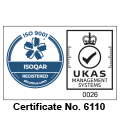The rate at which the IT landscape is changing is placing more pressure than ever before on businesses across all industries to keep abreast of the most recent developments to avoid being left lagging behind the competition. While an increasing number of firms are, for the most part, embracing these changes by harnessing the power of technology to develop their services, there are many companies that are failing to introduce new technology to existing processes, leaving them lagging behind their competition.
At Evaris, we come into contact with businesses every day that have acknowledged the need to use technology to their advantage, whether that be to speed up their current operations or to expand into new areas. However, time and time again, we are seeing firms of all sizes overlooking their existing processes in their quest to become more efficient - and not acknowledging that these processes need updating too can very often hold the entire business back.
Here, we take a closer look at those processes that could be slowing down a business’s progression and development.
Transferring business data
Very often, businesses experience great difficulty in transferring data from one system to another both efficiently and accurately. All companies have so-called “silos of chaos”, which refers to the common issue of cross-functional departments failing to work well together. This lack of communication and efficiency means that delivering projects can become more time-consuming than it needs to be. In many cases, an individual has to transfer data from one system to another in order to allow other departments to have access to this data. However, automation and system integration can hugely improve this process - but only if they are carried out properly.
Lacklustre system integration
As businesses introduce automated services to make operations more efficient, it is essential that these new developments and additional processes are properly integrated to release their full potential. With more automation very often come additional processes that require integration in order to be utilised to their full potential. For example, if a call centre relies on the use of CRM, inventory management and order tracking solutions, it is vital that employees know how to use all of these to improve the overall customer experience.
However, if there is not a standardised solution in place whereby these processes can be accessed, employees are left to shift between multiple sources of information, which can result in confusion and significant gaps in productivity.
The issue of complacency
All too often, businesses become bogged down in old processes that seem impossible to change. However, failing to address existing issues can be extremely dangerous and leave companies lagging behind. We have seen cases where some observant employees have not spoken out about such processes because they were worried about rocking the boat, but a lack of action can be detrimental to the wider business. Success is as much about people and culture as it is about technology.
AI and machine learning have broken down barriers for smaller businesses when it comes to automating and transforming key processes. With such technology, low-level decisions, which for many firms is a serious drain on resources, can be moved away from people, freeing them up to consider more strategic initiatives for the good of the business.
Inaccurate insights
In many instances, business owners can be left with useless information about the performance of the company due to a lack of real-time reporting, simply due to the fact that there was too much complication involved in accessing this information. Making smart decisions about the business can become virtually impossible without the most relevant insights, which makes reporting one of the most important processes.
Stagnant product offerings
With the rapid pace of change and development that is now present across all industries, it is essential to bring new ideas to market quickly. In such a fast-paced world, innovation now needs to happen more rapidly, placing pressure on businesses to speed up the product cycle process in order to remain competitive. These days, it is not uncommon for businesses to deploy new models of products on a much faster basis, simply adding more futures as they go along.
If you want to harness the power provided by digital transformation, Evaris can assist. Our experts are on hand to discuss your processes and offer advice accordingly. Contact us today by calling 0330 124 1245 or email [email protected].







